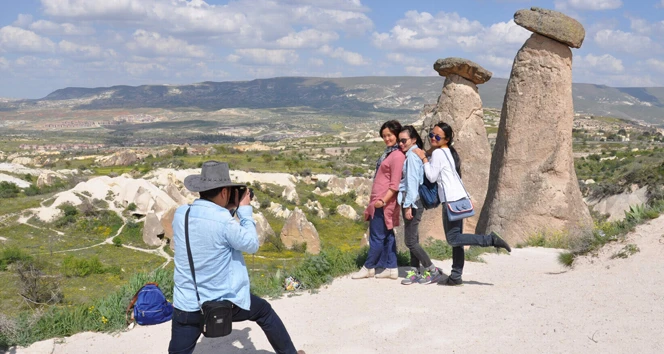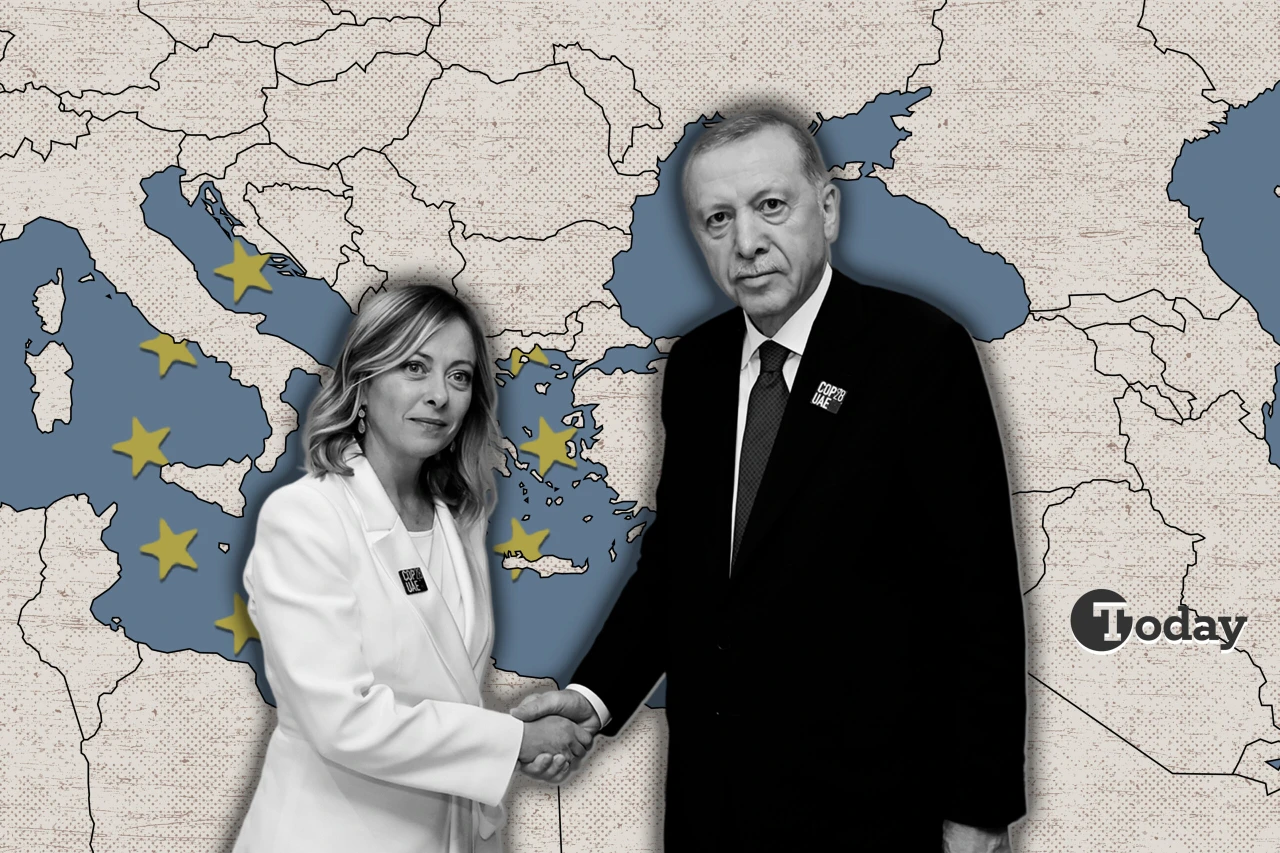Cyprus leaders meet in buffer zone, discuss landmine clearance, terrorist EOKA concerns
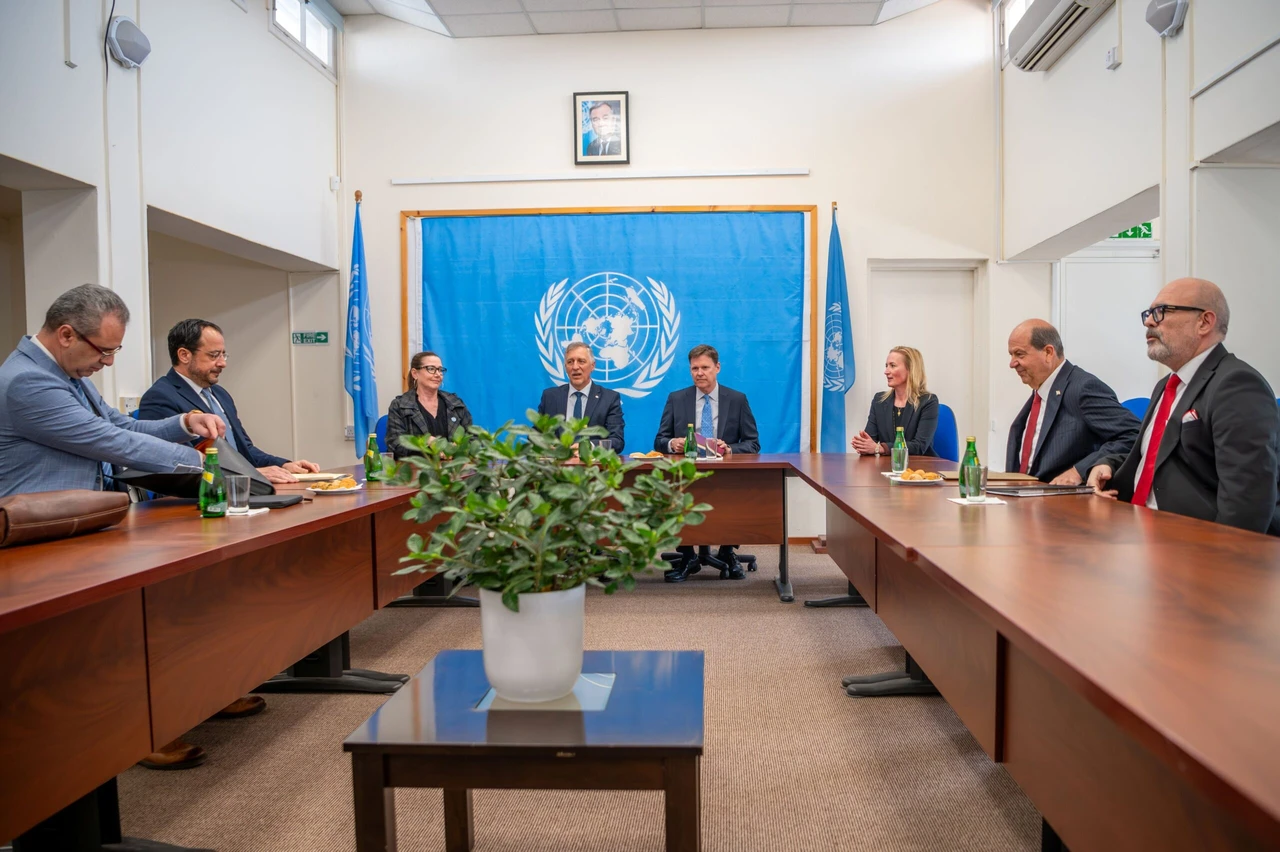 Greek Cypriot leader Nikos Christodoulides with Turkish Cypriot President Ersin Tatar, United Nations officials in the UN buffer zone splitting the divided capital Lefkosia, on April 2, 2025 (Photo via X / @UN_CYPRUS)
Greek Cypriot leader Nikos Christodoulides with Turkish Cypriot President Ersin Tatar, United Nations officials in the UN buffer zone splitting the divided capital Lefkosia, on April 2, 2025 (Photo via X / @UN_CYPRUS)
The leaders of the Turkish Republic of Northern Cyprus (TRNC) and the Greek Cypriot Administration held a U.N.-hosted meeting in the buffer zone on Wednesday to address confidence-building measures, landmine clearance, and the recent controversy over the EOKA terrorist group’s commemorations.
Cyprus leaders meet to advance confidence-building measures
TRNC President Ersin Tatar and Greek Cypriot leader Nikos Christodoulides held a 90-minute meeting hosted by U.N. Secretary-General’s Special Representative Colin Stewart.
Tatar was accompanied by Presidential Special Representative Gunes Onar, while Christodoulides was joined by Greek Cypriot negotiator Menelaos Menelau.
According to a joint U.N. statement, both sides agreed to:
- Address the issue of minefields at the level of representatives and negotiators
- Exchange information regarding dangerous areas
- Establish a “Bicommunal Youth Technical Committee” with member names to be submitted to the U.N. by April 15
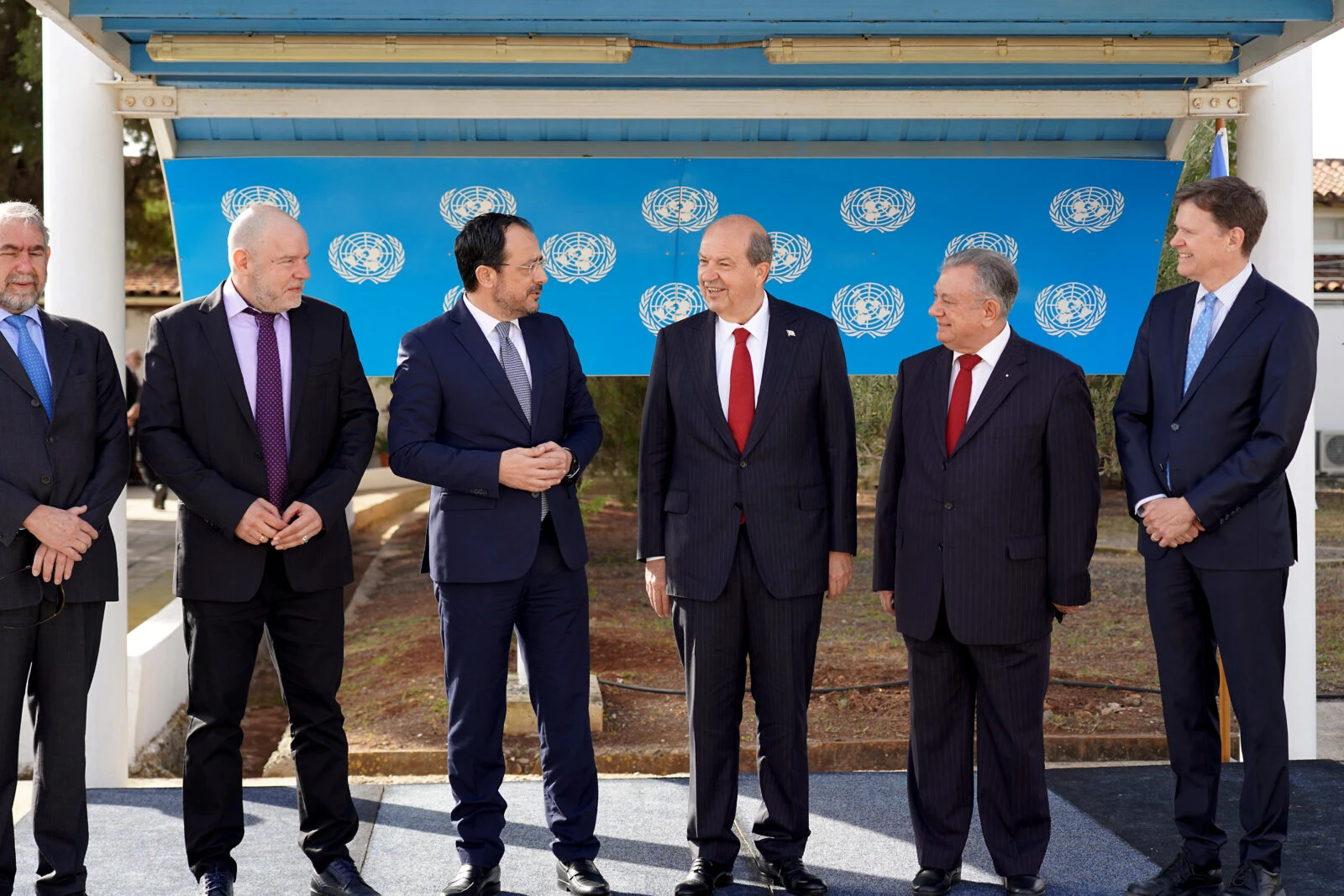
No Greek Cypriot initiative on border crossings, says Tatar
Following the meeting, President Tatar addressed the media at the TRNC Presidential Office, where he stated: “Unfortunately, there has been no initiative from the Greek side on the matter of border crossings. Although they talked about four crossings in Geneva, in return for the gates we proposed at Haspolat and Akinci, they want to create a direct corridor from Kiraci Village to Eglenche to allow for south-to-south transit.”
Tatar added, “We said that we cannot accommodate this for various reasons and asked them to propose more original ideas for alternative crossing points. The traffic at Metehan is currently causing difficulties for both sides. In 2024, 65% of the 8 million total crossings were through the Metehan checkpoint, with Greek Cypriots crossing as much as Turkish Cypriots. I emphasized again that opening gates at Haspolat or Akinci—or both—would benefit both communities and asked them to consider this reasonably.”
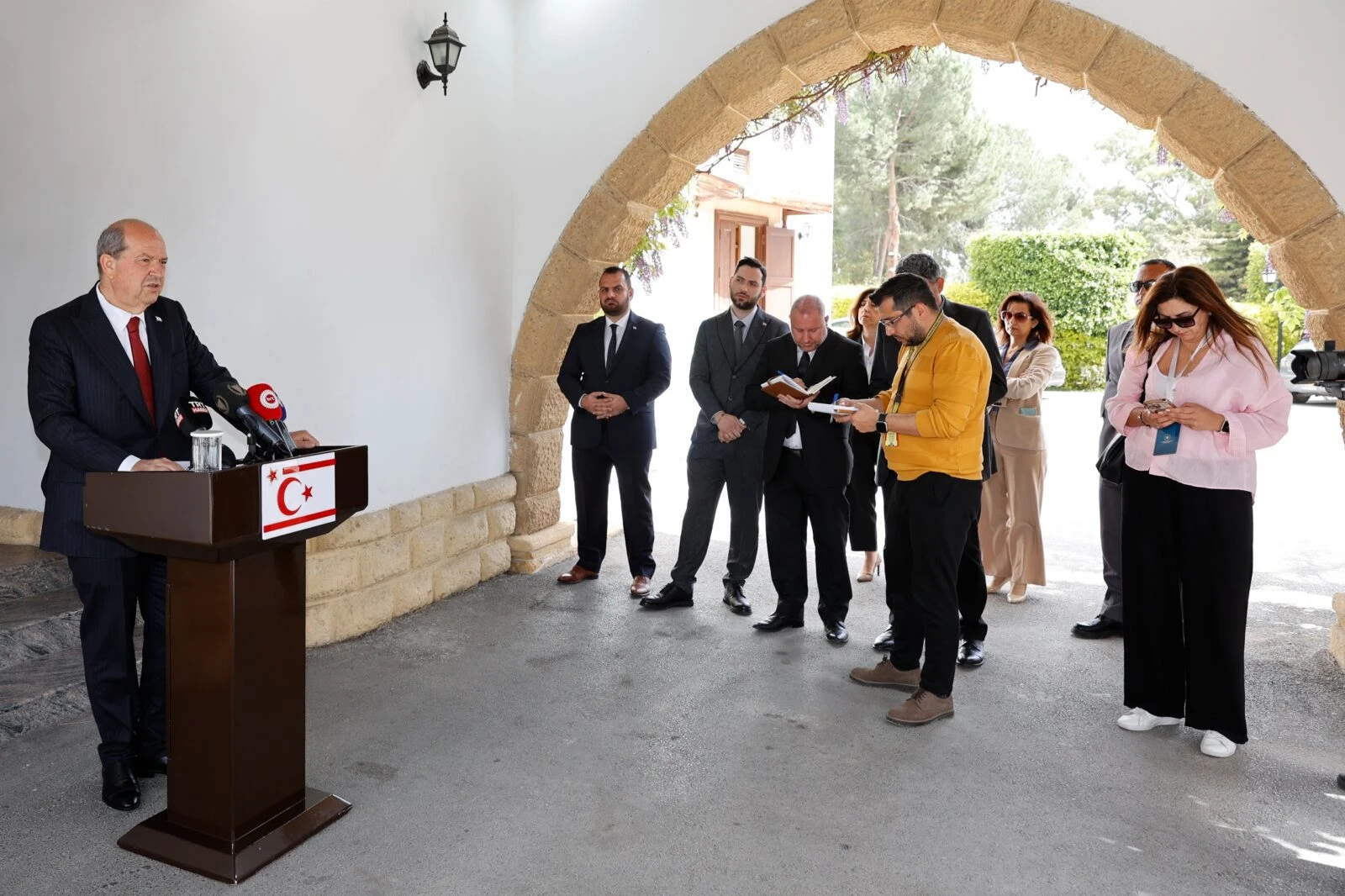
TRNC approves return of UN Personal Envoy
Following the meeting, President Tatar held a press conference, announcing that after consultations with Türkiye, the TRNC had approved Maria Angela Holguin Cuellar to resume her role as the U.N. Secretary-General’s Personal Envoy on Cyprus.
“Cuellar’s representation also seems to be accepted by the Greek Cypriots,” Tatar said, adding that an official announcement would be made soon by the United Nations.
Tatar added, “If Maria Angela Holguin Cuellar is reappointed as the U.N. Secretary-General’s Personal Envoy on Cyprus, she will only assist both the Turkish and Greek sides on the six issues discussed in Geneva, and she will not have a mission to explore whether there is any common ground between the two sides.”
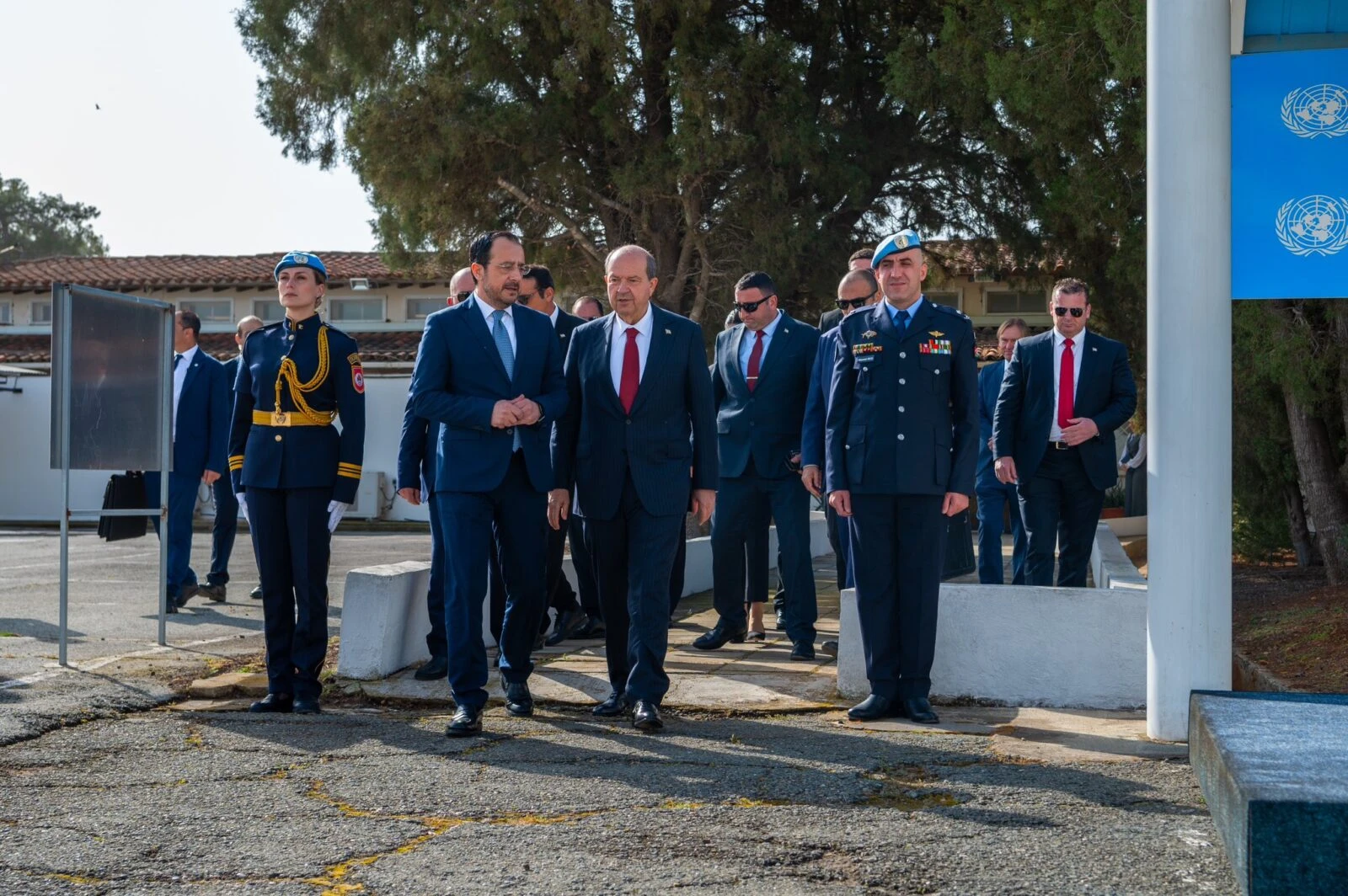
Tatar condemns official rhetoric on EOKA
Tatar raised concerns over the 70th anniversary events and statements commemorating the terrorist organization EOKA in the Greek Cypriot Administration and Greece.
“I expressed our condemnation of the official rhetoric and glorification surrounding the terrorist organization EOKA,” Tatar said.
Tatar also responded to the 70th anniversary commemorations for EOKA, “Yesterday, we as the Turkish side condemned the cheerleading and statements made for the 70th anniversary of EOKA’s founding. In the official statements, they declared that the goal of EOKA 70 years ago was to unite Cyprus with Greece. They expressed this through various ceremonies and events. I questioned the sincerity of these statements.”
He also criticized the acceptance of EOKA’s objective of uniting Cyprus with Greece by official Greek Cypriot authorities.
EOKA terrorist group was founded in 1954. In the early 1960s, ethnic attacks forced Turkish Cypriots to withdraw into enclaves for their safety.
In 1974, a Greek Cypriot coup aiming at Greece’s annexation led to Turkiye’s military intervention as a guarantor power to protect Turkish Cypriots from persecution and violence.
TRNC was founded in 1983. The Greek Cypriot administration entered the EU in 2004, the same year that Greek Cypriots thwarted the U.N.’s Annan plan to end the decadeslong dispute.
The island has seen an on-and-off peace process in recent years, including a failed 2017 initiative in Switzerland under the auspices of guarantor countries Türkiye, Greece, and the U.K.

UN welcomes progress in Cyprus talks
The meeting followed recent informal discussions in Geneva, after which U.N. Secretary-General Antonio Guterres described the developments as the first substantial progress in years.
According to a U.N. statement, “The two leaders agreed to establish a Technical Committee on Youth and provide by 15 April to the United Nations a list of members. They agreed that the Committee would have 12 members from each side and that all would be under 35 years of age. They also endeavoured to aim for gender parity.”
“The two leaders agreed that the issue of demining would be discussed at the level of the Greek Cypriot Negotiator and the Turkish Cypriot Special Representative and that they would exchange information on a proportional number of suspected hazardous areas from each,” the statement read.
“They agreed that the Technical Committee on Environment would work on initiatives related to the environment and climate change, including the impacts on mining areas, and that the Technical Committee on Cultural Heritage would be tasked to work on the restoration of cemeteries,” the statement noted.
“On crossing points and solar energy in the buffer zone, they had a constructive exchange and the leaders tasked their representatives to continue discussions of the issues, with the view to finding a mutually acceptable resolution. The two leaders agreed to meet again soon,” U.N. statement concluded.
Leaders also discussed additional confidence-building steps, including:
- Expanding the number of civilian crossing points
- Launching joint environmental and climate initiatives
- Establishing a solar energy project in the buffer zone
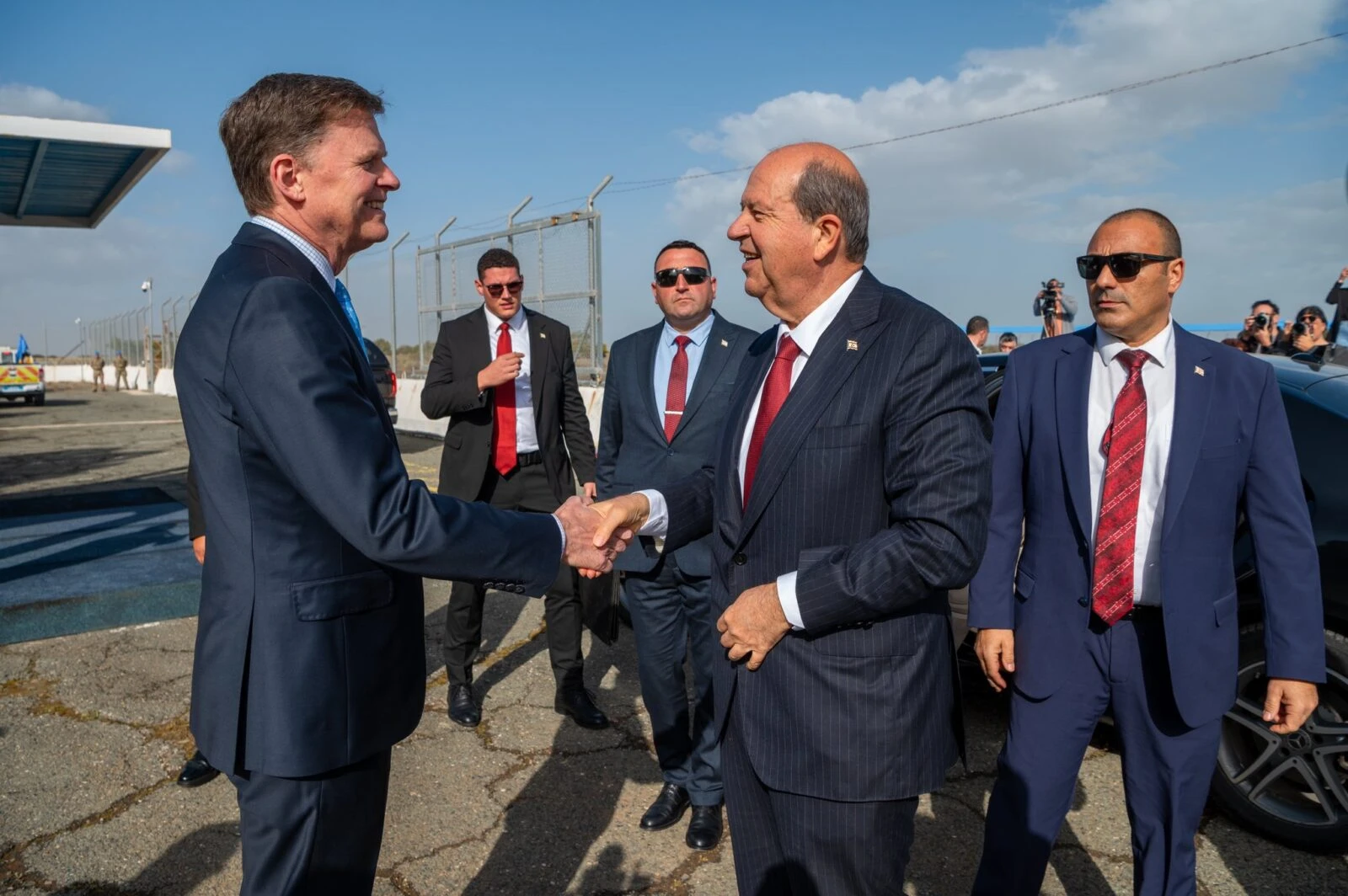
Federation no longer viable, says Tatar
Tatar reiterated the TRNC’s stance for a new political vision: “We have always expressed our goodwill for both communities to live side by side in a spirit of neighborhood. The Turkish Cypriot people have seen that all efforts and attempts at a federation have failed. We now believe in a new understanding and political model based on cooperation until a final solution is reached.”
He added, “The Greek Cypriot side’s core position revolves around their sovereignty and authority, expecting the Turkish Cypriots to submit to them. In their view, the Republic of Cyprus is the recognized authority, and we are a subordinate community. Even if they make some proposals, they do not recognize our sovereignty.”
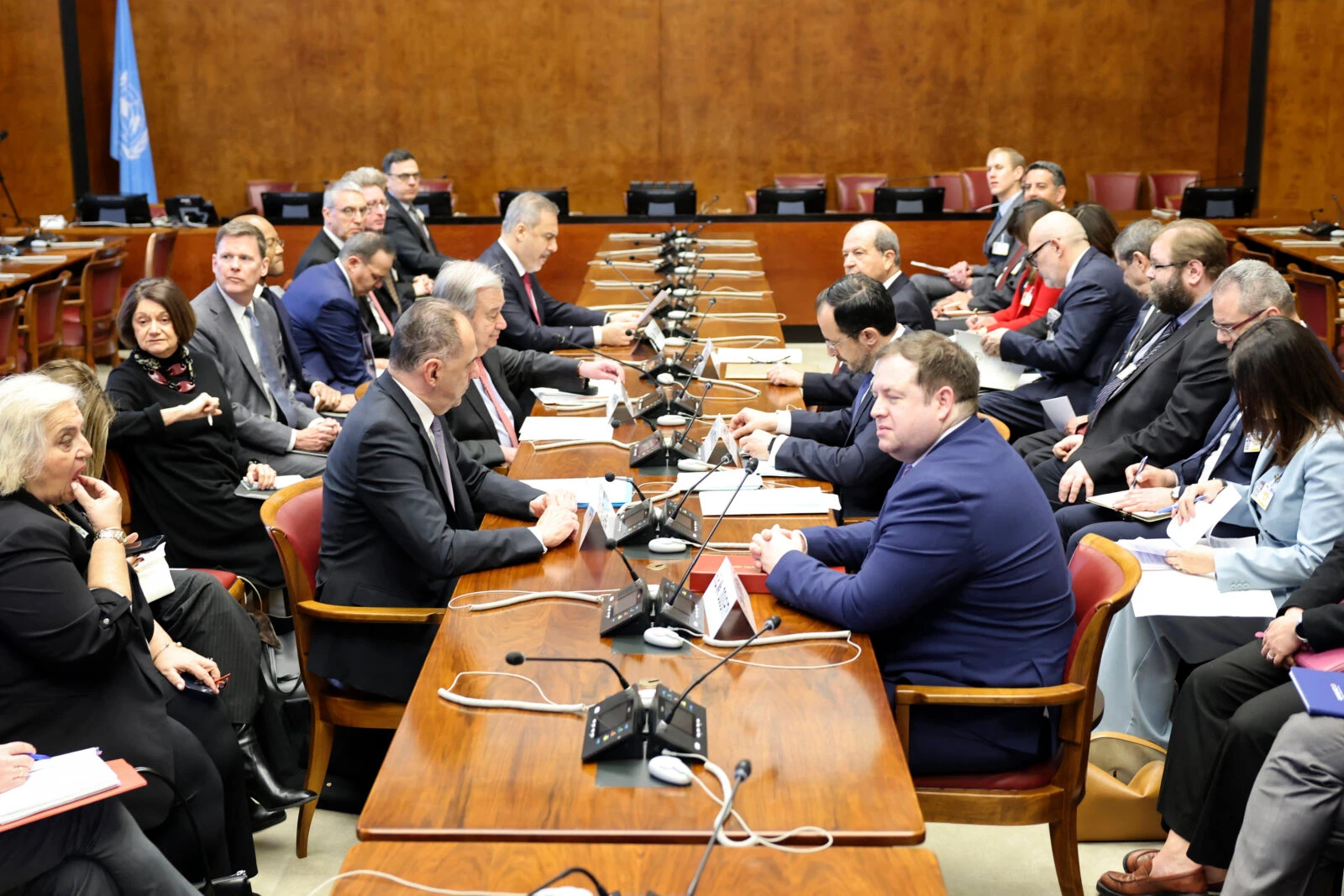
Solar project must acknowledge TRNC share
On a planned EU-funded solar energy system in the buffer zone, Tatar said: “While such a system would benefit both sides, the generated electricity is to be delivered to South Cyprus, and since it’s an interconnected system, our share would be 35%-40%, which they want to hand over to us through their KIBTEK administration.”
He continued, “We say—since there are two equal sides, two peoples, two separate structures—then the electricity should be shared accordingly. There’s nothing more normal than saying South Cyprus will take this much, and we will take our share directly into our own system. But they insist: it will go to the South, and they will deliver our share. That’s their mindset.”
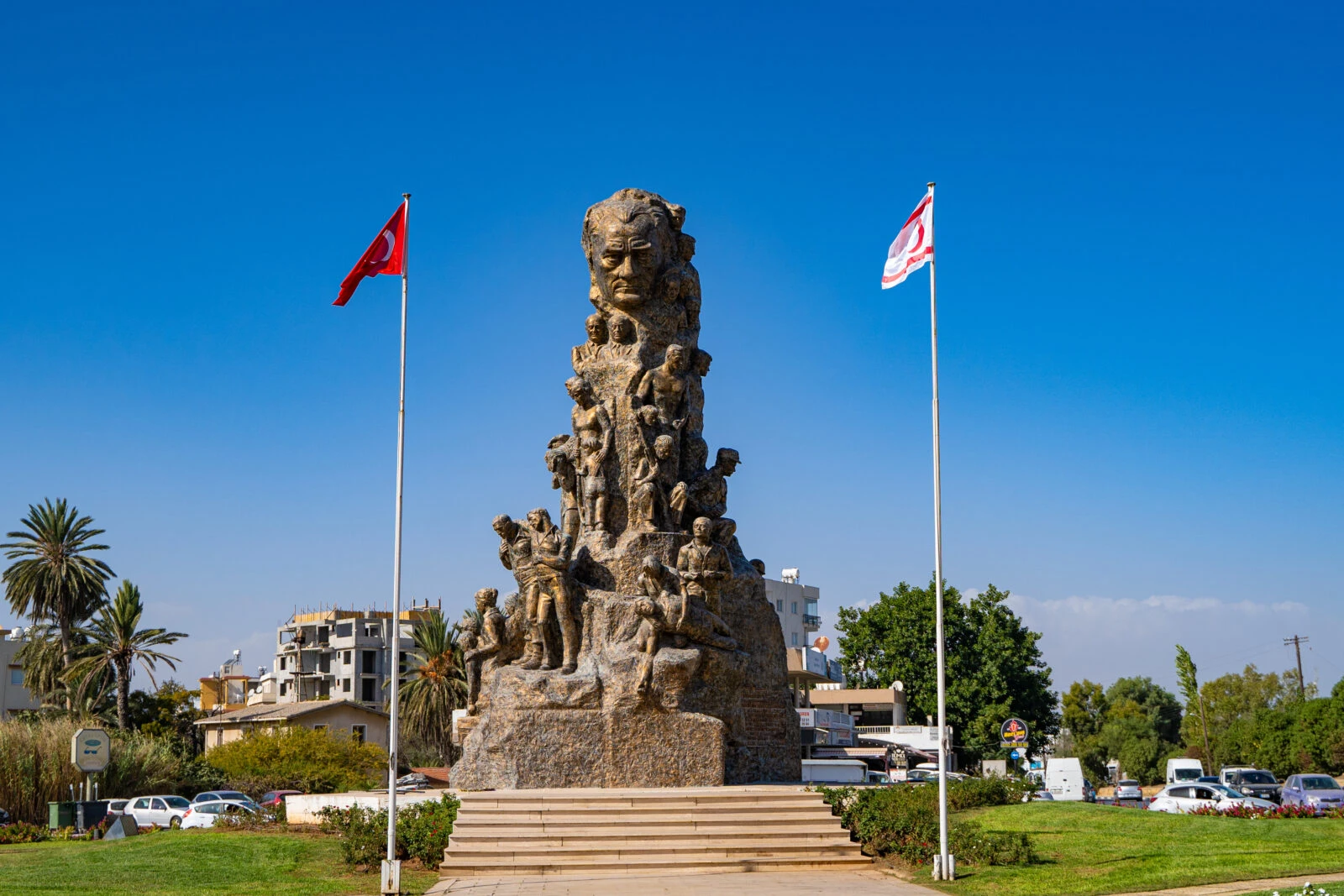
Landmine clearance and ongoing dialogue
Tatar stated that progress was made on the landmine issue: “There have been efforts over the years, but danger still exists in the buffer zone and elsewhere. Our representatives will continue working with the U.N. to clear these areas. We seem to have reached a consensus.”
He added that another meeting could happen before April 24, “Our intention is for both sides to cooperate on various projects that can benefit both communities. These six issues were confirmed in Geneva.”
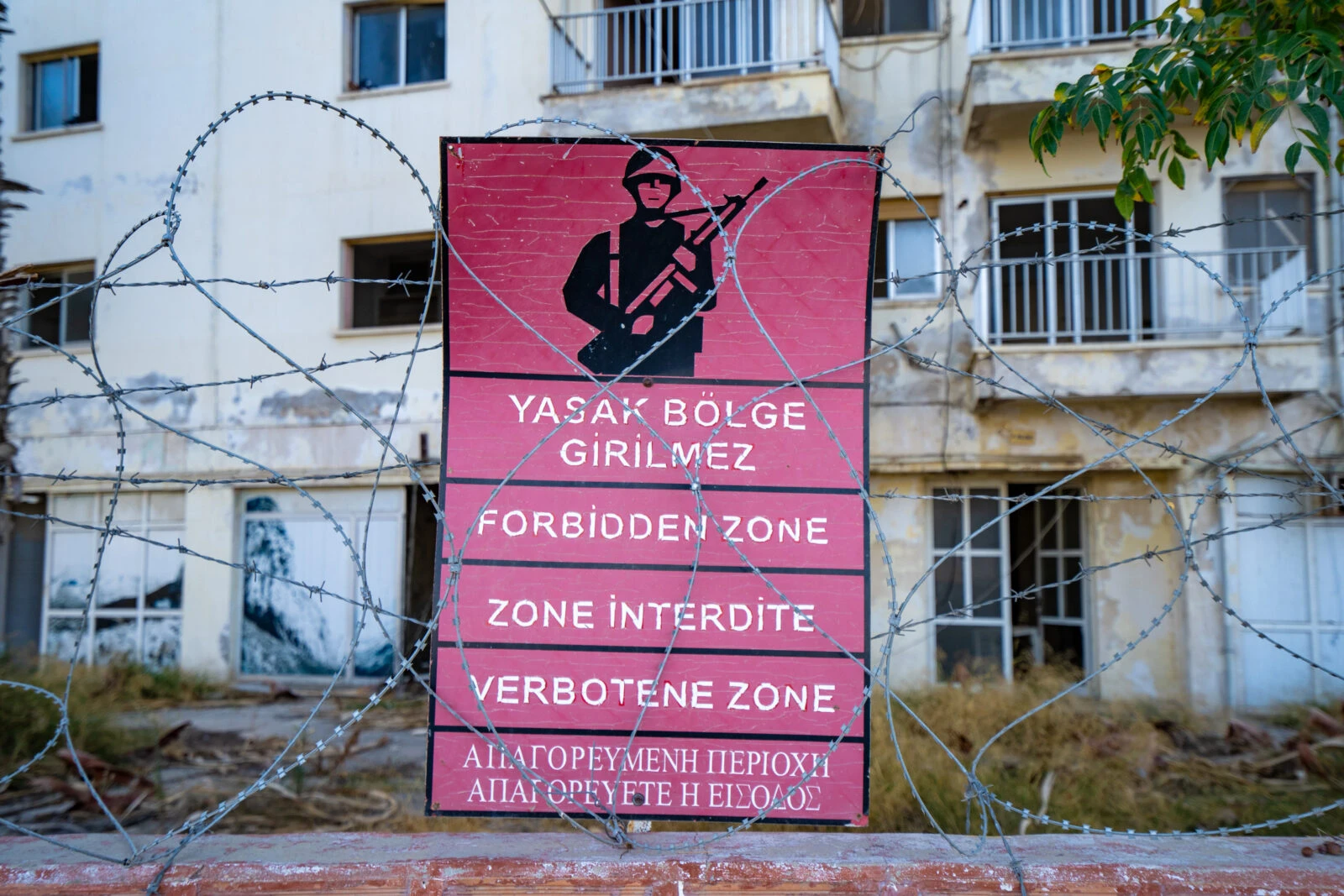
Equality and non-discrimination emphasized
Tatar concluded by highlighting equal treatment for all TRNC citizens: “I also made it clear that we will never accept any form of discrimination—especially against Turkish Cypriots of Turkish origin who were born here and are citizens of the TRNC. Preventing them from crossing south or benefiting from certain rights contradicts European Union values.”
He ended with a message of cautious optimism, “I expressed that until a final solution is reached, joint projects can help build a stronger foundation. Perhaps not today, but one day, if common ground is established, all these efforts may lead to a viable resolution. I reiterated my intention to meet again before April 24.”


